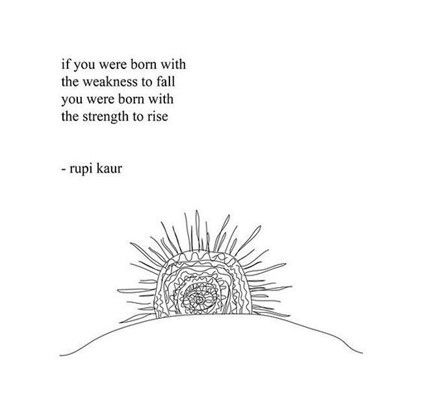That Sunday feeling on a continuous loop
Wellbeing strategies need to be at the heart of any organisation if they are to make a difference. In this post Narinder Gill, a former headteacher and now School Improvement Director of Elevate Multi-Academy Trust, explains how they have created a climate in which vulnerability is embraced.

As we enter the third week of lockdown in a new term and new year, it is inevitable that teachers and heads continue to feel anxious, nervous and most likely overwhelmed by the unprecedented events going on in our schools. Never before have we had to lead schools in a system that is changing almost daily - by the hour in some cases - and it's as tough as ever.
Constant planning, re-planning, U-turns and uncertainty, and the sheer abundance of new (and often contradictory) information has now become the norm. No wonder every evening feels like a Sunday.
Did you know that the Sunday Feeling is a genuine thing? It is experienced by many – often referred to as Sunday Night Anxiety or ‘Sunday Scaries’. It is a known form of anticipatory anxiety (characterised by an overwhelming feeling of dread about something that is due to happen).
It took me some years to realise that a lot of my colleagues also experienced this – it is natural and real.
In a 2013 poll from the career site Monster.com, 81 percent of American respondents said they get the Sunday Feeling—and a further 59 percent said they experience them “really bad.” Over a year ago, as a multi-academy trust, we had started to work with clinicians and practitioners on a wellbeing strategy that complemented our existing policies and practices and was not a standalone.
We wanted to try to look at sustainable ways of reducing the anxiety and overwhelm that staff may have been experiencing even before the pandemic hit.
At Elevate Trust our conversations shifted in early March 2020 as we began to recognise the need to equip our leaders with the ability to enter the unknown and to be prepared for that ‘Sunday Feeling on a Loop’.
I don’t think anyone at that time really knew what was needed or what was on the horizon. However, we had a firm belief that we needed to create strong support system for our leaders, key strategies that they could use with their staff at a time when they were surrounded by uncertainties.
As a result, Elevate Trust created an ethical climate whereby vulnerability was embraced through:
- Creating and sharing with the whole staff community a wellbeing resource booklet: ‘Maintaining your mental health and wellbeing during times of change and uncertainty.
- Confidential weekly one-to-one coaching sessions attended by over 80% of head teachers, senior leaders and central team members . According to one coachee, ‘The coaching has provided me with an anchor to manage the challenges ahead with a calmer mindset.’
- Fortnightly online webinars practically exploring key techniques for resilience, perspective and adaptability. According to one member of staff, ‘the mindfulness 5-minute exercise had helped me to sleep better.
- Weekly group coaching sessions that enabled a problem-solving approach with strategies that leaders used with their own school staff. ‘The opportunity to just say what I am thinking in a safe space has helped me to make sense and rationalise my own sense of feeling out of control, I realise I am not on my own.’
- Access to clinical psychologist support for senior leaders to develop understanding around compassionate focused therapy. ‘I have really thought about the way I use language and now always say safe-relating as opposed to social distancing.’
- Providing a trained psychotherapist support for leaders on Adverse Childhood Trauma to support them in understanding children’s experiences.
- Training a staff member as a Mental Health First Aider so as to normalise the focus upon mental wellness. ‘I feel so much more confident in starting a conversation around mental wellness.’
- Establishing weekly wellbeing clinics for any staff that needed support, including North Star ITT students. ‘I valued the opportunities to reflect upon the current situation and think about my own emotional balance and what I need to do.’
According to a recent McKinsey report (2020), 'when the path is uncertain people turn to leaders for clarity, grounded hope, seeking community and safety.’ The feedback from leaders certainly confirms this. School leaders within the trust reported they:
- Valued the clear direction, structure and responsiveness to their needs
- Felt listened to and understood by the Trust
- Felt supported and connected as a Trust community.
What I have noticed and become curious about is how many leaders were showing up and the shift in the conversations they were having. I observed them demonstrating a ‘deliberate calm’ even though they shared they were struggling to concentrate and having more negative thoughts.
More interestingly I have observed leaders showing their vulnerabilities more openly, acknowledging their own personal struggles, staying focused on moving forward positively and finding ways to keep their energy stores and levels high.
In the words of one Executive Headteacher: ‘It is okay to show up with strength even when we can’t control everything.’
These insights led to the creation of the Reflective Space – a monthly space for leaders to come together. In particular it became a space to pause within a mindful environment; a space for thinking, that would help leaders to shift their perspectives, refocus, rebalance and reframe thinking through collaborative confident conversations.
Coaching as a wellbeing resource has been instrumental to this and the trust has invested in the ILM 5 coaching programme for all headteachers in the Autumn term 2020 as a sustainable strategy and a way of reducing that ‘Sunday Feeling.’
My final thoughts are that although the journey ahead is still going to be presented with challenges through our continued focus on wellbeing, as a trust we have created a connective energy that will be our catalyst for hope and compassion.
As we enter 2021 we will be having deeper reflective confident conversations about our role as educators, our curriculum offer and the development of professional learning communities. And finally I would like to share a poem that resonates of hope.

Narinder Gill has led three schools as a headteacher and currently works part-time at Elevate Trust. She is an accredited executive business coach and has also worked alongside schools, trusts and the private sector to design and deliver well-being and resilience programmes. Narinder is the strategic director for the Curriculum Foundation and coaches on the Future Leaders programme.